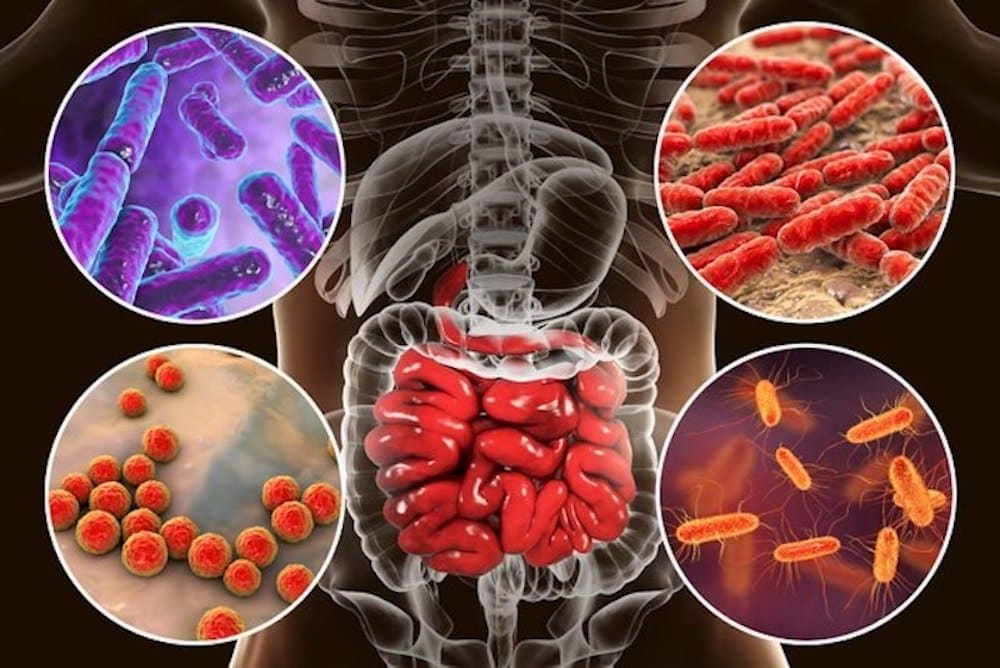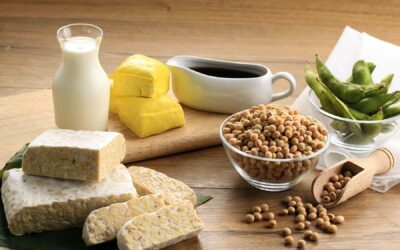Medically reviewed by Dr. Lucky (Lakshman Mulpuri MD)
What is whey protein?
Whey, a protein complex derived from cow’s milk, is the liquid byproduct of the cheesemaking process.
Next, the liquid whey is filtered and purified through various processes to remove carbohydrates (like lactose) and fat and make a whey concentrate.
Finally, the concentrate is spray dried with both hot and cold air to render a powder that’s about 90-95% protein. This is the base for whey-based protein powders, shakes, and bars.
Does whey protein have side effects?
One of the difficulties in studying nutrition is that our bodies are complex and respond to foods differently. That’s why it’s often better to study whole foods and entire dietary patterns instead of their individual components.
However, the authors of a recent systematic review3 (an analysis of numerous studies) found a number of concerning findings regarding whey proteins impact upon health, particularly when consumed in higher-than-normal doses (40 grams/day or more of whey).
Increased whey protein consumption can lead to:
- Increased expression of acne
- This is closely related to the American Academy of Dermatology’s delineation of the connection between all forms of dairy milk and acne4.
- Liver injury
- Increased oxidative stress
- Kidney problems
- Inflammation
- Bloating
- Expression of anger
Continue reading for more details about their findings. There has been a plethora of research conducted comparing animal protein to plant protein, and we can build a fairly complete picture on its impacts on various aspects of human health.

Whey protein consumption effects on kidneys
How can whey protein impact your kidneys? According to the authors, consuming whey protein, even during a short-period only, has proven to incur the following effects: increased plasma urinary volume, and urinary calcium excretion while the pH of urinary citrate decreases.
Separately, Dietary Acid Load (the balance of acid-inducing foods and base-inducing foods) can have a significant impact on kidney health14. Animal protein rich foods, like whey protein, are considered acid inducing and increased DAL was associated with kidney damage among U.S. adults. On the other hand, plant protein sources are comparatively less acid forming due to their lower sulfur containing amino acids.
Bottom line for kidney health: Quality of the protein matters (plant vs animal)! Plant-based protein can be kidney protective due to its anti-inflammatory and alkaline producing properties.
Risk of liver injury for sedentary individuals using whey
In the systematic review, whey’s impact on the liver’s health was generally limited to individuals living sedentary lives.
Researchers found that when not exercising, the stress from excessive proteins (not being utilized for muscle synthesis) and subsequent processing was interrelated with markers of liver injury. Over time, sedentary participants showed signs of early liver injury.
The relationship between diet and various forms of liver disease has only recently gained attention. One in particular, fatty liver disease (FLD) utilizes a formula called the fatty liver index (FLI) to diagnose disease. It affects millions of Americans annually and a 2018 study demonstrated higher intakes of animal protein to be associated with a higher Fatty Liver Index (FLI) while vegetable protein was the opposite relationship.
Bottom line for liver health: We need more data to determine whey’s impact, if there is any, on liver health. But sedentary people in particular should be mindful about the type and amount of protein they’re consuming.
Whey and inflammation
Chronic low-grade inflammation has been linked to a number of chronic diseases such as cancer, heart disease, stroke, and Type 2 Diabetes.
However, when comparing whey protein isolate and plant-based protein isolates, the data is more mixed. The authors of a recent meta-analysis found increases in CRP (inflammatory biomarker) when comparing animal protein to control and the opposite relationship with plant-proteins. But these relationships could not be confidently endorsed by the authors.
A more recent meta-analysis found that both soy protein and whey protein elicit anti-inflammatory effects15.
Inflammation in the body can inhibit the repair of muscle fibers broken down during exercise, potentially causing muscle atrophy, prolonging the healing process post-injury, and causing extreme pain or discomfort in affected areas. Optimizing these factors through a diet emphasizing fruits and vegetables will likely be more useful than one component of your diet!

Are whey protein shakes good for athletes?
True athleticism isn’t about being stronger or faster—it’s about longevity. One major component of longevity is avoiding inflammation.
Many professional athletes have discovered that a dairy-free diet is a key to enhancing their performance and maintaining their peak for years past their expected retirement age. These leaders are moving the needle toward plant-based fuel in sports, but the misconception surrounding dairy and performance nutrition still lingers.
While whey protein supplements are still commonly used by athletes and trainers, recent developments in plant-based powders along with substantial evidence regarding animal protein’s potentially harmful effects is beginning to undermine whey protein’s status as the “paragon of health supplements.”

The Broader Picture: Plant Proteins vs Animal Protein
Would it surprise you that our bodies respond differently to protein depending on its source?
A landmark 2016 Harvard Study with 130,000+ participants found that replacing animal protein with plant protein was associated with a lower risk of dying prematurely (mortality)5. Another large trial found replacing just 3% of animal protein with plant protein sources resulted in a 10% decrease in mortality6.
Why is this the case?
Well we aren’t entirely sure… but there are some clues. One prevailing theory points to the amplification of cancer-promoting serum IGF-1 (growth hormone) levels after consuming animal protein. This concern though does not apply to plant proteins and multiple studies have found an inverse relationship regarding IGF-1 levels and plant protein intake7,8. Additionally, plant proteins are often lower in branched chain amino acids (BCAAs) which has been linked to improvements in metabolic health9.
Additional potential benefits of plant proteins compared to animal proteins include:
- Reduced risk of cardiovascular mortality and development of Type 2 Diabetes10
- This includes lowering of blood lipids across the board.
- Blood pressure lowering11
- Improvements in insulin resistance and BMI12
- Lower levels of pro-inflammatory markers13
No Such Thing As An Incomplete Protein:
Plant-based protein powders have become increasingly popular among consumers. However, misconceptions still surround the efficacy of plant protein such as the incorrect labeling of plant protein as an “incomplete protein” due to its composition of amino acids. But, it has been decades since this has been disproven (1994 to be exact1) and dozens of studies since then have supported this assertion. You might have heard this alternatively called “protein combining.”
All plant foods contain all 20 amino acids (including the 9 essential amino acids) but certain plants may be relatively lower in some of these amino acids2. As a result, our body maintains a readily available supply of pool of amino acids to mix and match and create the necessary proteins for our bodies.
What you should know: Any concern regarding amino acid deficiency (or incomplete proteins) in plant predominant diets is unsupported at best.
Which protein powder is safe to use?
Plant-based protein powders are dairy-free, meaning they contain no protein from whey or other dairy byproducts, making them a comparable and safe protein powder option for your health and athletic performance.
The good news is that there are many options for dairy-free proteins that are widely available. Multiple trials16-18 comparing individuals utilizing plant-based protein or whey protein have found no significant differences in strength, performance, or body composition.
In conjunction with a healthy diet, plant-based protein powders can be a wonderful addition to a daily routine.
Some of the plant-based protein supplements we love are 22 Days Nutrition and NuFyx. For more whey-free supplement options, check out our favorites below.
THE 9 BEST WHEY-FREE PROTEIN POWDERS
References →
- Young VR, Pellett PL. Plant proteins in relation to human protein and amino acid nutrition. Am J Clin Nutr. May 1994;59(5 Suppl):1203s-1212s. doi:10.1093/ajcn/59.5.1203S
- Mariotti F, Gardner CD. Dietary Protein and Amino Acids in Vegetarian Diets-A Review. Nutrients. Nov 4 2019;11(11)doi:10.3390/nu11112661
- Vasconcelos Q, Bachur TPR, Aragão GF. Whey protein supplementation and its potentially adverse effects on health: a systematic review. Appl Physiol Nutr Metab. Jan 2021;46(1):27-33. doi:10.1139/apnm-2020-0370
- Can the right diet get rid of acne? https://www.aad.org/public/diseases/acne/causes/diet
- Song M, Fung TT, Hu FB, et al. Association of Animal and Plant Protein Intake With All-Cause and Cause-Specific Mortality. JAMA Intern Med. Oct 1 2016;176(10):1453-1463. doi:10.1001/jamainternmed.2016.4182
- Huang J, Liao LM, Weinstein SJ, Sinha R, Graubard BI, Albanes D. Association Between Plant and Animal Protein Intake and Overall and Cause-Specific Mortality. JAMA Intern Med. Sep 1 2020;180(9):1173-1184. doi:10.1001/jamainternmed.2020.2790
- Norat T, Dossus L, Rinaldi S, et al. Diet, serum insulin-like growth factor-I and IGF-binding protein-3 in European women. Eur J Clin Nutr. Jan 2007;61(1):91-8. doi:10.1038/sj.ejcn.1602494
- Allen NE, Appleby PN, Davey GK, Kaaks R, Rinaldi S, Key TJ. The associations of diet with serum insulin-like growth factor I and its main binding proteins in 292 women meat-eaters, vegetarians, and vegans. Cancer Epidemiol Biomarkers Prev. Nov 2002;11(11):1441-8.
- Fontana L, Cummings NE, Arriola Apelo SI, et al. Decreased Consumption of Branched-Chain Amino Acids Improves Metabolic Health. Cell Rep. Jul 12 2016;16(2):520-530. doi:10.1016/j.celrep.2016.05.092
- Lamberg-Allardt C, Bärebring L, Arnesen EK, et al. Animal versus plant-based protein and risk of cardiovascular disease and type 2 diabetes: a systematic review of randomized controlled trials and prospective cohort studies. Food Nutr Res. 2023;67doi:10.29219/fnr.v67.9003
- Alexander S, Ostfeld RJ, Allen K, Williams KA. A plant-based diet and hypertension. J Geriatr Cardiol. May 2017;14(5):327-330. doi:10.11909/j.issn.1671-5411.2017.05.014
- Kahleova H, Fleeman R, Hlozkova A, Holubkov R, Barnard ND. A plant-based diet in overweight individuals in a 16-week randomized clinical trial: metabolic benefits of plant protein. Nutr Diabetes. Nov 2 2018;8(1):58. doi:10.1038/s41387-018-0067-4
- Markova M, Koelman L, Hornemann S, et al. Effects of plant and animal high protein diets on immune-inflammatory biomarkers: A 6-week intervention trial. Clin Nutr. Mar 2020;39(3):862-869. doi:10.1016/j.clnu.2019.03.019
- Banerjee T, Crews DC, Wesson DE, et al. Dietary acid load and chronic kidney disease among adults in the United States. BMC Nephrol. Aug 24 2014;15:137. doi:10.1186/1471-2369-15-137
- Prokopidis K, Mazidi M, Sankaranarayanan R, Tajik B, McArdle A, Isanejad M. Effects of whey and soy protein supplementation on inflammatory cytokines in older adults: a systematic review and meta-analysis. Br J Nutr. Mar 14 2023;129(5):759-770. doi:10.1017/s0007114522001787
- Banaszek A, Townsend JR, Bender D, Vantrease WC, Marshall AC, Johnson KD. The Effects of Whey vs. Pea Protein on Physical Adaptations Following 8-Weeks of High-Intensity Functional Training (HIFT): A Pilot Study. Sports (Basel). Jan 4 2019;7(1)doi:10.3390/sports7010012
- Teixeira FJ, Matias CN, Faleiro J, et al. A Novel Plant-Based Protein Has Similar Effects Compared to Whey Protein on Body Composition, Strength, Power, and Aerobic Performance in Professional and Semi-Professional Futsal Players. Front Nutr. 2022;9:934438. doi:10.3389/fnut.2022.934438
- Monteyne AJ, Coelho MOC, Murton AJ, et al. Vegan and Omnivorous High Protein Diets Support Comparable Daily Myofibrillar Protein Synthesis Rates and Skeletal Muscle Hypertrophy in Young Adults. J Nutr. Jun 2023;153(6):1680-1695. doi:10.1016/j.tjnut.2023.02.023








